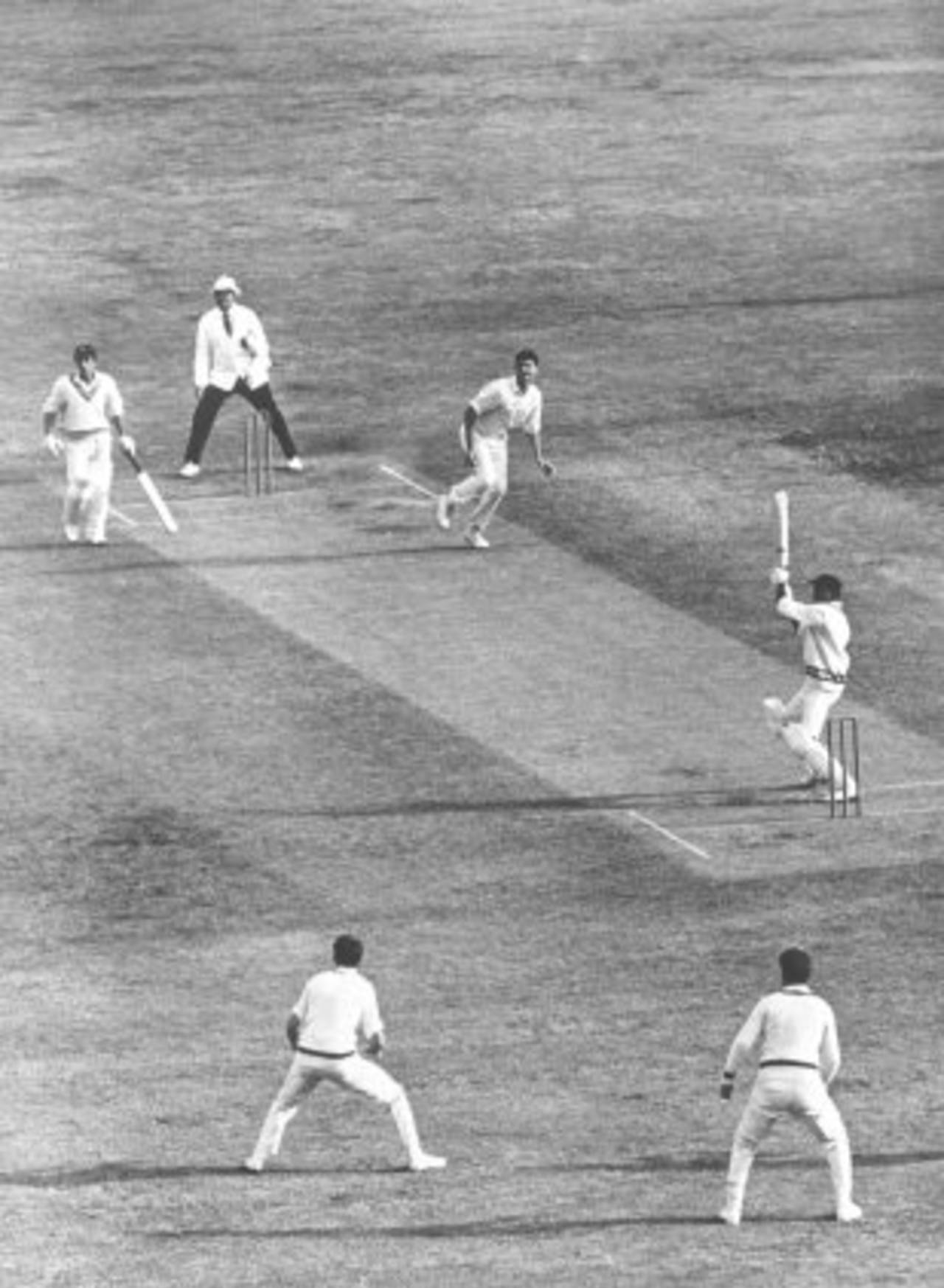It's been a mournful few weeks for cricket followers of a certain age. First the death of
Tony Greig, then
Christopher Martin-Jenkins, the tall Sri Lankan wicketkeeper
Guy de Alwis, and the South African pair of
Neil Adcock and
Peter van der Merwe (the first Test captain I saw who wore glasses, which impressed the young bespectacled me). But the name that resounded most personally was that of
Rusi Surti, the Indian allrounder,
who died on January 13 while on a visit to Mumbai from his adopted home in Brisbane.
Surti, you see, had captured my imagination in some of the first Tests I ever watched on TV, in England
in 1967. India basically didn't have any opening bowlers in that series, so Surti was forced to take the new ball in the first two Tests. He didn't have much luck, but he was obviously an important member of the side.
In the
third Test, at Edgbaston, which Surti missed through injury (or possibly overwork), the new ball was taken by Budhi Kunderan, the reserve wicketkeeper, who had bowled fewer than 30 previous overs during a long first-class career. Asked beforehand what Kunderan bowled, his captain, the Nawab of Pataudi, (who opened the bowling himself in the second innings) said, "We'll have to see."
Surti was a handy batsman, and a versatile bowler who could turn his (left) arm to medium pace or spin. Some tagged him the Indian Garry Sobers, and although the stats suggest that was a bit optimistic - Surti scored 1263 runs in 26 Tests at 26, and took 42 wickets at 46 - he was indeed a fine player. After a long career in India, mainly for Gujarat, Surti had a good tour Down Under
in 1967-68 - he scored 70 and 53, and took 5 for 74, in the first Test, in Adelaide - and then decided to settle in Australia.
He became the first (and still only) Indian international to feature in the Sheffield Shield. He survived in that hard school for four seasons in his mid-thirties, taking Queensland's first Shield hat-trick,
in Perth in 1968-69, and making a round 100, also against WA, a couple of years later
in Brisbane. "He was a very handy player," said Queensland's long-serving wicketkeeper John Maclean. "Just having someone who had played Tests helped us, because at that stage none of us had done so."
Surti was a Parsi, like
Farokh Engineer (the incumbent wicketkeeper, whose presence forced Kunderan to take up bowling in 1967). "We grew up together and played the game in Dadar's Parsi colony," said Engineer. "He was extremely talented, and one of the best fielders I've seen, along with Eknath Solkar and Abid Ali."
Mention of Engineer also took me back, to the early days of wisden.com, which later merged with Cricinfo. We had been thrust, blinking and basically unprepared, into the internet age: told we had to beef up the site's audio-visual content, we tried to set up some interviews with notable ex-players. Farokh was the first.
On the big day our general factotum Fran (the sister of the Tour de France cyclist David Millar) and I toddled off to the swanky London hotel in which we'd put Farokh up for the night, toting our new camera and sound equipment - and hoping we'd worked out how to plug it in, let alone make it work properly.
At reception I confidently asked for "Mr Engineer"; the girl behind the counter hesitated only slightly before jabbing a few buttons on her phone. A few minutes passed, then we heard footsteps. However, it wasn't the well-rounded figure of the jovial former India wicketkeeper, but a small Irish chap in a boiler suit. "Hello," he announced, balefully eyeing our gleaming pile of equipment. "Oi am de engineer."
Further enquiries eventually unearthed the real thing, indulging in a pot of Darjeeling in the hotel cafe. Both Engineers followed us to a room, where the smaller one kindly set up the camera tripod and made sure the power was switched on. "Where are your questions?" asked Fran, just before we started. She wasn't entirely reassured by my reply: "On this Post-It note. I know all about him, really."
Rather surprisingly in the circumstances, it went well, although the room was boiling hot and we didn't have the heart to summon the other Mr Engineer again. I read a name off the Post-It note, and Farokh was away. He was in fine form, unleashing a host of stories, some of them new, some rather familiar - I'm sure that century against West Indies in 1966-67, when he flayed Wes Hall, Charlie Griffith and Garry Sobers for 94 before lunch on the first day
in Madras, gets quicker every time he mentions it - but by and large it went well. We put the resultant hour-long interview up on the site almost without cuts (probably because we weren't sure how to make them), and it was a minor hit. And Fran was still astonished at my apparent lack of proper preparation weeks later.

